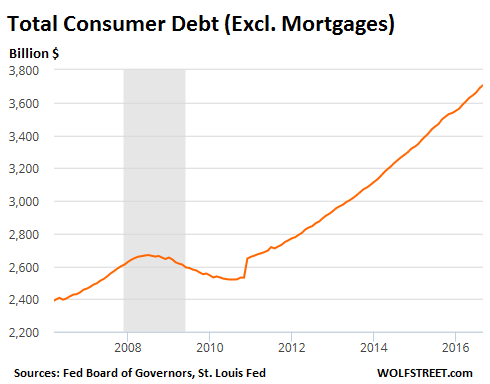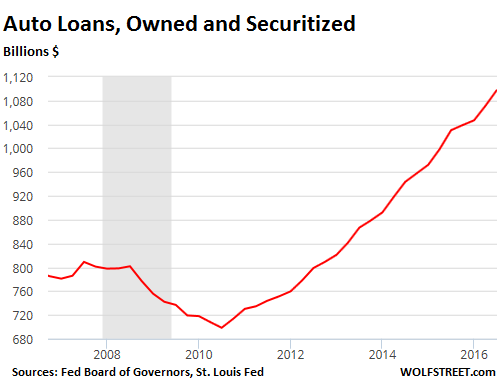The Fed likes the word “credit.” Sounds less onerous than “debt.”
Consumer debt rose by $19.3 billion in September to $3.71 trillion, another record in a five-year series of records, the Federal Reserve’s Board of Governors reported on Monday. Consumer debt is up 6% from a year ago, at a time when wages are barely creeping up and when consumer spending rose only 2.4% over the same period.
This follows the elegant principle of borrowing ever more to produce smaller and smaller gains in spending and economic growth. Which is a highly sustainable economic model with enormous future potential, according to the Fed.
Consumer debt – the Fed uses “consumer credit,” which is the same thing but sounds a lot less onerous – includes student loans, auto loans, and revolving credit, such as credit cards and lines of credit. But it does not include mortgages. And that borrowing binge looks like this:

Diving into the components, so to speak: outstanding balances of new and used vehicle loans and leases jumped by $22.6 billion from Q2 to $1.098 trillion, another record in an uninterrupted four-year series of records.
Auto loans have soared 38% from Q3 2012, the time when they regained the glory levels of the Greenspan bubble before the Financial Crisis:

Auto loan balances have soared because people bought more cars. New car sales hit an all-time record last year, though they’ve started to flatten out or decline in recent months. The balances have also been rising because loan terms are getting stretched, and because the balances on individual loans have been getting bigger as cars got more expensive and loan-to-value ratios rose:
…click on the above link to read the rest of the article…













